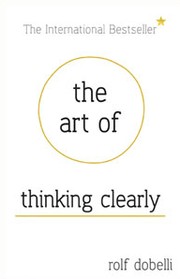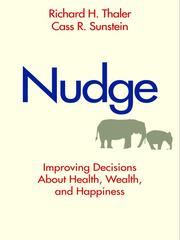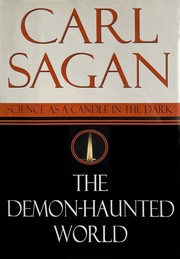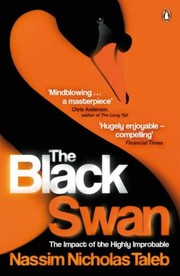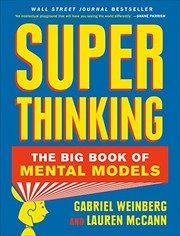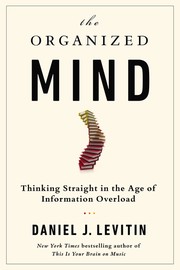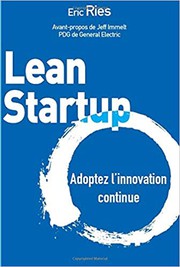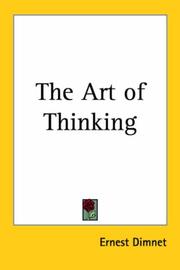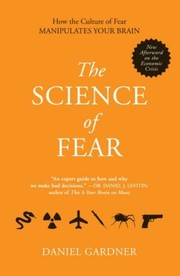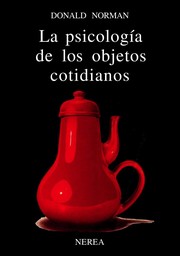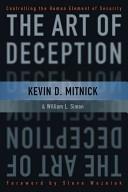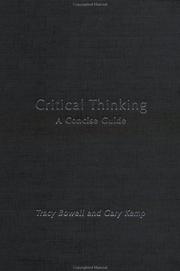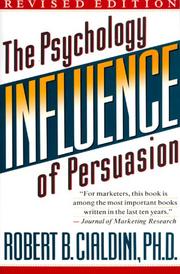Are you looking to sharpen your critical thinking skills? Look no further! We’ve curated a list of the 20 best books about critical thinking that will challenge your mind and expand your perspective. Whether you’re a student, professional, or just someone who loves a good book on critical thinking, these critical thinking books will provide you with the tools and insights to think more critically and make better decisions. Let’s dive in and explore these thought-provoking reads!
Contents
- 1 20 Best Books About Critical Thinking
- 2 Thinking, Fast and Slow
- 3 The Art of Thinking Clearly
- 4 Nudge: Improving Decisions About Health, Wealth, and Happiness
- 5 Predictably Irrational: The Hidden Forces That Shape Our Decisions
- 6 The Demon-Haunted World: Science as a Candle in the Dark
- 7 The Black Swan: The Impact of the Highly Improbable
- 8 Super Thinking: The Big Book of Mental Models
- 9 The Righteous Mind: Why Good People Are Divided by Politics and Religion
- 10 The Organized Mind: Thinking Straight in the Age of Information Overload
- 11 The Innovator’s Dilemma: When New Technologies Cause Great Firms to Fail
- 12 The Lean Startup: How Today’s Entrepreneurs Use Continuous Innovation to Create Radically Successful Businesses
- 13 The Upside of Irrationality: The Unexpected Benefits of Defying Logic at Work and at Home
- 14 The Art of Thinking
- 15 The Believing Brain: From Ghosts and Gods to Politics and Conspiracies—How We Construct Beliefs and Reinforce Them as Truths
- 16 The Science of Fear: How the Culture of Fear Manipulates Your Brain
- 17 The Design of Everyday Things
- 18 The Art of Deception: Controlling the Human Element of Security
- 19 Critical Thinking: A Concise Guide
- 20 Influence: The Psychology of Persuasion
- 21 The Attacker’s Advantage: Turning Uncertainty into Breakthrough Opportunities
- 22 Conclusion
- 23
- 24 The 20 Reading Comprehension Books: Best 2024 Update and Review
- 25 Explore 20 Best Girl Falling In Love With Best Friend Books with Our 2024 Update
- 26 Family Relationships Books: A Curated 2024 Updated List
20 Best Books About Critical Thinking
Thinking, Fast and Slow
by Daniel Kahneman
Thinking, Fast and Slow by Daniel Kahneman is a groundbreaking book on critical thinking that delves into the two systems that drive the way we think: the fast, intuitive and emotional system, and the slow, deliberate and logical system. Kahneman, a Nobel Prize-winning psychologist, explores the cognitive biases and heuristics that affect our decision making, shedding light on the flaws and limitations of human reasoning. Through engaging examples and thought-provoking experiments, the book challenges readers to reevaluate their assumptions about their own thinking processes and the world around them. With its insightful exploration of the complexities of the human mind, this book about critical thinking offers valuable insights into how we can make more informed and rational decisions in our daily lives.
The Art of Thinking Clearly
by Rolf Dobelli
The Art of Thinking Clearly by Rolf Dobelli is a captivating book on critical thinking that delves into the common mental pitfalls we all fall victim to. Dobelli presents 99 cognitive biases, logical fallacies, and social distortions that cloud our judgment and hinder our decision-making. Through engaging anecdotes and real-life examples, the author offers practical advice on how to recognize and overcome these obstacles, empowering readers to make clearer, more rational choices in both their personal and professional lives. This insightful book about critical thinking provides valuable insights into the workings of the human mind and offers tools for sharpening our decision-making skills. Whether you’re a business professional, student, or simply someone who wants to improve their thinking, The Art of Thinking Clearly is an essential addition to your reading list.
Nudge: Improving Decisions About Health, Wealth, and Happiness
by Richard H. Thaler and Cass R. Sunstein
Nudge: Improving Decisions About Health, Wealth, and Happiness is a groundbreaking book on critical thinking by Richard H. Thaler and Cass R. Sunstein. The authors explore how small changes, or “nudges,” in the way choices are presented can significantly impact decision-making. Drawing on insights from behavioral economics, psychology, and neuroscience, the book offers practical strategies for improving individual and societal decision-making. It challenges readers to rethink the traditional assumptions about human rationality and demonstrates how subtle changes in the environment can steer people towards better choices. Nudge provides a compelling argument for the power of choice architecture in shaping behavior and offers valuable insights for anyone interested in understanding and improving decision-making processes. This book about critical thinking is essential reading for anyone seeking to make better choices and understand the forces that influence our decisions.
Predictably Irrational: The Hidden Forces That Shape Our Decisions
by Dan Ariely
Predictably Irrational by Dan Ariely is a captivating book on critical thinking that explores the hidden forces that influence our decision-making processes. Through a series of thought-provoking experiments and real-life examples, Ariely challenges the traditional economic theory that humans are rational beings when it comes to making choices. He delves into the irrational behaviors that shape our decisions, such as the power of free offers, the influence of social norms, and the impact of emotions on our choices. This critical thinking book sheds light on the quirks of human behavior and provides valuable insights into how we can make better decisions in our personal and professional lives. Ariely’s engaging writing style and fascinating findings make Predictably Irrational a must-read for anyone interested in understanding the complexities of decision-making.
The Demon-Haunted World: Science as a Candle in the Dark
by Carl Sagan
The Demon-Haunted World: Science as a Candle in the Dark is a thought-provoking book on critical thinking by Carl Sagan. In this captivating work, Sagan explores the importance of skepticism, reason, and scientific thinking in a world filled with superstition, pseudoscience, and misinformation. With eloquence and insight, Sagan urges readers to embrace the tools of critical thinking and to question claims that lack empirical evidence. He emphasizes the value of scientific inquiry and the need to distinguish between genuine knowledge and unfounded beliefs. The book serves as a powerful reminder of the dangers of ignorance and the vital role of rational thinking in navigating the complexities of our world. Sagan’s compelling prose and compelling arguments make this book about critical thinking a must-read for anyone seeking to cultivate a deeper understanding of the world around them.
The Black Swan: The Impact of the Highly Improbable
by Nassim Nicholas Taleb
The Black Swan by Nassim Nicholas Taleb is a thought-provoking book on critical thinking that explores the impact of rare and unpredictable events on our lives. Taleb introduces the concept of “black swan” events, which are highly improbable occurrences with massive consequences. Through engaging anecdotes and insightful analysis, he challenges the way we perceive and understand the world, shedding light on the limitations of our knowledge and the importance of embracing uncertainty. This critical thinking book encourages readers to question their assumptions, consider the role of randomness in shaping our lives, and develop a more nuanced understanding of the complex systems that govern our world. With its emphasis on skepticism and intellectual humility, The Black Swan offers a fresh perspective on decision-making and risk assessment, making it an essential read for anyone interested in understanding the unpredictable nature of our reality.
Super Thinking: The Big Book of Mental Models
by Gabriel Weinberg and Lauren McCann
Super Thinking: The Big Book of Mental Models by Gabriel Weinberg and Lauren McCann is a comprehensive guide to improving your decision-making skills. This book on critical thinking introduces readers to various mental models, which are thinking tools that help us make sense of the world and make better choices. The authors present a wide range of mental models, from probability and statistics to physics and biology, offering practical examples and exercises to help readers apply these models in their daily lives. Whether you’re a student, professional, or simply someone looking to enhance your critical thinking abilities, this critical thinking book provides valuable insights and strategies for making smarter decisions. Super Thinking is a must-read for anyone seeking to sharpen their cognitive skills and become a more effective thinker.
The Righteous Mind: Why Good People Are Divided by Politics and Religion
by Jonathan Haidt
The Righteous Mind is a thought-provoking exploration of why people are so deeply divided by politics and religion. Jonathan Haidt delves into the psychology of morality, arguing that our moral judgments are driven more by intuition than by critical thinking. Haidt presents a compelling case for the importance of understanding the moral foundations that shape our beliefs and how they influence our political and religious affiliations. This book about critical thinking challenges readers to consider the role of emotions and social influences in shaping our moral reasoning, offering valuable insights for anyone seeking to understand the complex dynamics of human morality and the nature of political and religious divisions. The Righteous Mind is a must-read for anyone interested in psychology, ethics, or the complexities of human nature.
The Organized Mind: Thinking Straight in the Age of Information Overload
by Daniel J. Levitin
The Organized Mind: Thinking Straight in the Age of Information Overload by Daniel J. Levitin is a fascinating exploration of how our brains process and organize the constant influx of information in today’s digital age. Levitin, a neuroscientist and cognitive psychologist, offers practical strategies for managing information overload and making better decisions. This critical thinking book delves into the science of attention, memory, and decision-making, providing valuable insights into how we can optimize our cognitive abilities. By understanding the way our brains work, readers can learn to navigate the complexities of modern life with more clarity and efficiency. Levitin’s engaging writing style and real-world examples make this book a must-read for anyone seeking to improve their organizational skills and cognitive performance in the face of overwhelming amounts of information.
The Innovator’s Dilemma: When New Technologies Cause Great Firms to Fail
by Clayton M. Christensen
The Innovator’s Dilemma by Clayton M. Christensen is a groundbreaking book on critical thinking that explores why successful companies often fail when faced with disruptive innovation. Christensen argues that companies can become too focused on satisfying their existing customers and improving their current products, which can blind them to the potential of new, disruptive technologies. The book provides numerous case studies and examples to illustrate how even the most well-managed and innovative companies can be blindsided by new technologies. Christensen offers valuable insights into how companies can navigate the challenges of disruptive innovation and adapt their business strategies to stay ahead in a rapidly changing marketplace. The Innovator’s Dilemma is a must-read for anyone interested in understanding the complexities of innovation and the importance of critical thinking in business.
The Lean Startup: How Today’s Entrepreneurs Use Continuous Innovation to Create Radically Successful Businesses
by Eric Ries
The Lean Startup by Eric Ries is a groundbreaking book on critical thinking for entrepreneurs. Ries introduces the concept of continuous innovation, urging businesses to adopt a flexible, adaptive approach to product development. He emphasizes the importance of testing assumptions, gathering feedback, and making data-driven decisions to create successful, scalable businesses. Ries’s approach challenges traditional business models and encourages entrepreneurs to embrace uncertainty, take calculated risks, and pivot when necessary. The book provides practical strategies for startup founders and established companies alike, offering valuable insights into building a sustainable business in today’s fast-paced, ever-changing market. With its focus on experimentation and learning, The Lean Startup is an essential read for anyone seeking to develop a critical thinking mindset and drive innovation in their entrepreneurial endeavors.
The Upside of Irrationality: The Unexpected Benefits of Defying Logic at Work and at Home
by Dan Ariely
The Upside of Irrationality by Dan Ariely is a thought-provoking book about critical thinking that challenges the notion that logic is always the best approach. Ariely explores the unexpected benefits of defying logic at work and at home, shedding light on the ways in which irrationality can actually lead to positive outcomes. Through engaging anecdotes and thought experiments, Ariely demonstrates how our irrational behaviors can be harnessed for greater creativity, motivation, and decision-making. This critical thinking book offers a fresh perspective on human behavior and provides valuable insights for anyone looking to understand the complexities of the mind. Whether you’re interested in psychology, economics, or simply want to improve your critical thinking skills, The Upside of Irrationality is a compelling read that will challenge your assumptions and expand your understanding of human behavior.
The Art of Thinking
by Ernest Dimnet
The Art of Thinking by Ernest Dimnet is a timeless book on critical thinking that delves into the intricacies of the human mind and the art of reasoning. Dimnet explores the importance of cultivating a thoughtful and analytical approach to life, in both personal and intellectual pursuits. Through engaging prose and thought-provoking insights, the author encourages readers to sharpen their intellect and embrace the power of critical thinking in every aspect of their lives. This critical thinking book offers practical wisdom and guidance for developing a deeper understanding of the world around us, making it an essential read for anyone seeking to enhance their cognitive abilities and broaden their perspectives.
The Believing Brain: From Ghosts and Gods to Politics and Conspiracies—How We Construct Beliefs and Reinforce Them as Truths
by Michael Shermer
The Believing Brain by Michael Shermer is a fascinating book on critical thinking that delves into the psychology behind belief formation. Shermer explores how our brains are wired to seek patterns and make sense of the world, often leading us to construct and reinforce beliefs that may not align with reality. From the belief in ghosts and gods to political ideologies and conspiracy theories, Shermer unpacks the cognitive processes that underpin our convictions and offers insights into how we can cultivate a more rational and evidence-based approach to understanding the world. Through engaging storytelling and compelling research, The Believing Brain challenges readers to examine their own beliefs and encourages a more skeptical and open-minded approach to navigating the complexities of our modern world. This critical thinking book is a must-read for anyone interested in understanding the human mind and the nature of belief.
The Science of Fear: How the Culture of Fear Manipulates Your Brain
by Daniel Gardner
The Science of Fear: How the Culture of Fear Manipulates Your Brain by Daniel Gardner is a fascinating exploration of how fear influences our thoughts and behaviors. This critical thinking book delves into the psychology of fear, examining how media, politics, and society exploit our natural instincts to instill fear in us. Gardner provides insight into how our brains process fear and how we can learn to recognize and combat irrational fears. He offers practical strategies for approaching fear with a rational mindset, empowering readers to make informed decisions and resist manipulation. This book about critical thinking is a thought-provoking and eye-opening read, shedding light on the ways fear can impact our perceptions and actions. It’s a must-read for anyone interested in understanding the complexities of human psychology and the power of critical thinking.
The Design of Everyday Things
by Don Norman
The Design of Everyday Things by Don Norman is a seminal book on critical thinking in the context of design. Norman explores the ways in which everyday objects are designed and how those designs impact our interactions with them. He delves into the psychology of design, discussing the principles of usability and the importance of user-centered design. Through engaging examples and case studies, Norman challenges readers to think critically about the objects they encounter daily, prompting them to consider how design choices influence their experiences. This thought-provoking book about critical thinking encourages readers to question the design of the world around them and to recognize the power of thoughtful, user-centric design in shaping their everyday lives.
The Art of Deception: Controlling the Human Element of Security
by Kevin D. Mitnick
The Art of Deception: Controlling the Human Element of Security by Kevin D. Mitnick is a captivating book about the art of manipulating human behavior to gain access to sensitive information. Mitnick, a former hacker turned security consultant, explores the psychological tactics and social engineering techniques used to exploit the human element of security. This eye-opening book on critical thinking sheds light on the vulnerabilities of human nature and provides valuable insights into how to protect against social engineering attacks. Mitnick’s engaging storytelling and real-world examples make this critical thinking book a must-read for anyone interested in cybersecurity, psychology, or human behavior.
Critical Thinking: A Concise Guide
by Tracy Bowell and Gary Kemp
Critical Thinking: A Concise Guide by Tracy Bowell and Gary Kemp is a comprehensive and accessible book about critical thinking. It provides a clear and practical introduction to the essential skills of critical reasoning and argumentation. The authors present a wide range of topics, from identifying and analyzing arguments to evaluating evidence and making sound judgments. This book on critical thinking is perfect for students and anyone looking to improve their analytical and reasoning abilities. With its engaging and easy-to-follow style, it’s a valuable resource for anyone seeking to develop their critical thinking skills and become a more effective and discerning thinker.
Influence: The Psychology of Persuasion
by Robert B. Cialdini
Influence: The Psychology of Persuasion by Robert B. Cialdini is a captivating exploration of the psychology behind the art of persuasion. This insightful book delves into the various tactics and techniques used by individuals to influence the behavior and decisions of others. Cialdini draws on his extensive research and real-life examples to shed light on the power of persuasion and how it can be harnessed for both positive and negative outcomes. Whether you’re a marketer, salesperson, or simply interested in the dynamics of human interaction, this book offers valuable insights into the principles of influence and the psychology behind them. It’s a must-read for anyone looking to enhance their understanding of the subtle and often unconscious forces that shape our decisions. This is a book about critical thinking that will leave you with a deeper understanding of the art of persuasion.
The Attacker’s Advantage: Turning Uncertainty into Breakthrough Opportunities
by Ram Charan
The Attacker’s Advantage by Ram Charan is a compelling book about critical thinking that explores how businesses can thrive in an uncertain and rapidly changing environment. Charan argues that in today’s volatile market, traditional strategies are no longer sufficient, and companies must learn to embrace uncertainty and turn it into breakthrough opportunities. The book provides insights into how successful companies navigate ambiguity, make bold decisions, and continuously innovate to stay ahead of the competition. Charan presents a framework for leaders to develop a mindset that enables them to see change as an advantage rather than a threat. Packed with real-life examples and actionable strategies, The Attacker’s Advantage is an essential read for anyone looking to sharpen their critical thinking skills and gain a competitive edge in the business world.
Conclusion
These 20 best books about Critical Thinking offer valuable insights and practical strategies for honing this essential skill. From examining logical fallacies to improving decision-making, these books provide a comprehensive guide to developing a well-rounded critical mindset. Whether you’re a student, educator, or lifelong learner, the wisdom contained within these pages will undoubtedly enrich your intellectual journey. Dive into these thought-provoking reads and elevate your ability to think critically in all aspects of life.
Which Critical Thinking book is best?
The best book on Critical Thinking can vary with personal preference, but three widely recommended titles are:
- Thinking, Fast and Slow by Daniel Kahneman,
- The Art of Thinking Clearly by Rolf Dobelli,
- Nudge: Improving Decisions About Health, Wealth, and Happiness by Richard H. Thaler and Cass R. Sunstein.
Each offers valuable insights and could be a great starting point.
What are the best books to learn about Critical Thinking?
For those looking to learn about Critical Thinking, there is a wealth of literature that can provide a comprehensive understanding of the subject. Some of the most highly recommended books include:
- Thinking, Fast and Slow by Daniel Kahneman,
- The Art of Thinking Clearly by Rolf Dobelli,
- Nudge: Improving Decisions About Health, Wealth, and Happiness by Richard H. Thaler and Cass R. Sunstein,
- Predictably Irrational: The Hidden Forces That Shape Our Decisions by Dan Ariely,
- The Demon-Haunted World: Science as a Candle in the Dark by Carl Sagan,
- The Black Swan: The Impact of the Highly Improbable by Nassim Nicholas Taleb,
- Super Thinking: The Big Book of Mental Models by Gabriel Weinberg and Lauren McCann,
- The Righteous Mind: Why Good People Are Divided by Politics and Religion by Jonathan Haidt,
- The Organized Mind: Thinking Straight in the Age of Information Overload by Daniel J. Levitin,
- The Innovator’s Dilemma: When New Technologies Cause Great Firms to Fail by Clayton M. Christensen
These books offer a range of perspectives on Critical Thinking, covering various aspects and approaches to the subject.
What are the best books on Critical Thinking?
The best books on Critical Thinking include:
- Thinking, Fast and Slow by Daniel Kahneman,
- The Art of Thinking Clearly by Rolf Dobelli,
- The Lean Startup: How Today’s Entrepreneurs Use Continuous Innovation to Create Radically Successful Businesses by Eric Ries,
- The Upside of Irrationality: The Unexpected Benefits of Defying Logic at Work and at Home by Dan Ariely,
- The Righteous Mind: Why Good People Are Divided by Politics and Religion by Jonathan Haidt,
- The Black Swan: The Impact of the Highly Improbable by Nassim Nicholas Taleb.
Each offers unique insights into the subject. While these books on the topic of Critical Thinking are highly regarded, it’s important to note that any list of ‘best’ books is subjective and reflects a range of opinions.
What are the best Critical Thinking books of all time?
Choosing the best Critical Thinking books of all time can vary depending on who you ask, but seven titles that are often celebrated include
- Thinking, Fast and Slow by Daniel Kahneman,
- The Art of Thinking Clearly by Rolf Dobelli,
- The Demon-Haunted World: Science as a Candle in the Dark by Carl Sagan,
- The Righteous Mind: Why Good People Are Divided by Politics and Religion by Jonathan Haidt,
- The Innovator’s Dilemma: When New Technologies Cause Great Firms to Fail by Clayton M. Christensen,
- The Upside of Irrationality: The Unexpected Benefits of Defying Logic at Work and at Home by Dan Ariely,
- and The Lean Startup: How Today’s Entrepreneurs Use Continuous Innovation to Create Radically Successful Businesses by Eric Ries.
Each of these books has made a significant impact in the field of Critical Thinking and continues to be influential today.


